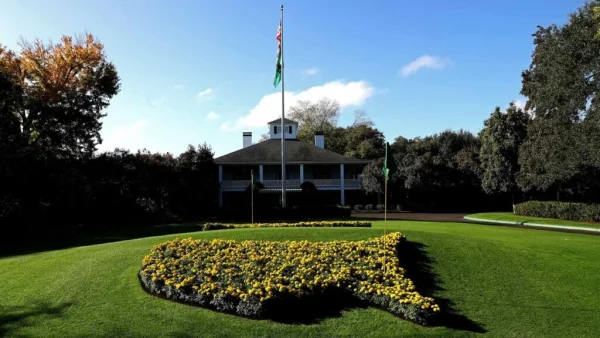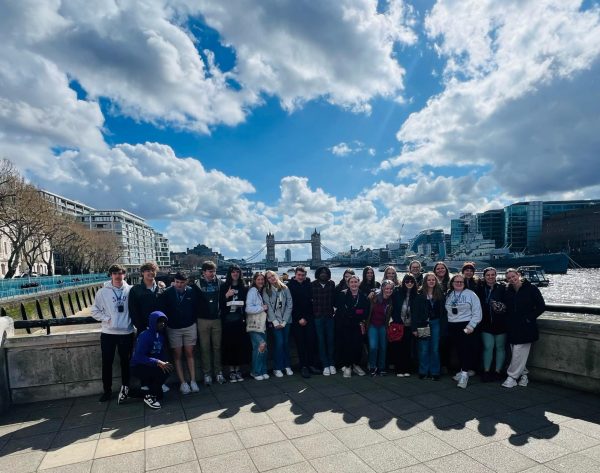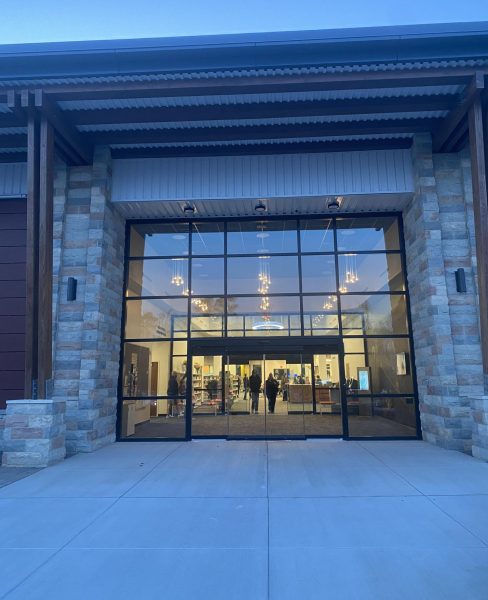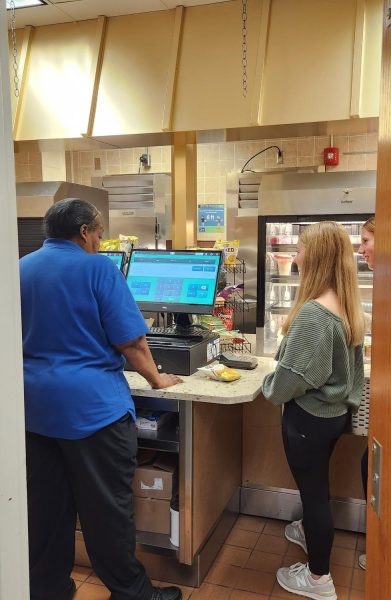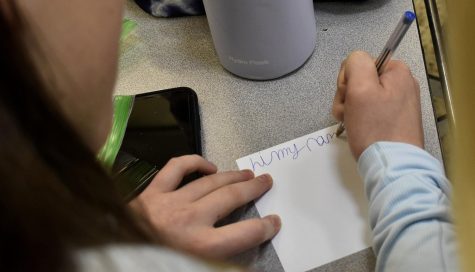The globe gears up against COVID-19
International Responses to the Ongoing COVID-19 Pandemic
Photo by: Pixabay
In 2020, the world was rocked by COVID-19, a widespread virus that left countries scrambling for a response plan. Over the next two years, nations varied in how they tackled the virus, which included the severity of their restrictions used to contain it. As the virus evolved, new highly-contagious variants emerged, causing a surge in cases worldwide. As a result, many countries have re-evaluated their current restrictions for the best interest of their citizens.
Canada
During the holidays, COVID cases surged, causing lockdowns throughout many provinces. At this time, Canada’s main concern remained vaccinating the population.
Federal vaccine mandates were put in place for those working in the public sector, travelers on cruise ships or certain trains, as well as those coming into Canada from other countries, including Canadian citizens. However, the strictness of these restrictions varied depending on the province.
Quebec’s unvaccinated population, for example, only makes up 12.8% of the population but accounts for nearly a third of all hospital cases. In response, Quebec has imposed a health tax on unvaccinated residents, which has motivated many to receive their first dose. Ontario has taken steps to ensure it is simple for citizens to prove their vaccination status, such as a vaccine passport system and downloadable vaccine receipts with QR codes that can be scanned using an app.
Germany
As Germany recently experienced a shift in leadership from former Chancellor Angela Merkel to Chancellor Olaf Scholz, the country has been re-visiting many COVID guidelines in an effort to adapt to the rapidly evolving strands of the virus. Scholz recently met with the prime ministers of the federal states during a Bund-Länder-Runde, a COVID-related informal meeting between the federal government and state leaders, to discuss any changes they may make to their lockdown measures or federal guidelines as a whole. These new changes came into effect soon after Christmas as Scholz believed that the German people had “behaved responsibly” during the holidays in previous years.
These new guidelines include but are not limited to:
- regulations of large gatherings (no groups over ten vaccinated people, further restrictions for those who are unvaccinated or recently recovered from COVID)
- increased testing requirements for unvaccinated students in German schools
- postponing major events (sporting, cultural events, etc.)
- indoor clubs are forced to close and dance events are banned
“Schools just announced that we had to wear masks again,” says Felix Scheewe, a high school junior in North-Rhine Westphalia. “Before that, we had a period without them. Nobody really took [their masks] off because everyone wanted to stay safe.”
In regards to the severity of these requirements, Scheewe noted, “We get sent home when we are caught without masks in school. The teachers are really taking it seriously. People who are not wearing their masks are almost never seen in schools. Some wear their masks incorrectly and are told by the teachers to wear them correctly, but even this happens very rarely. The students here are taking the masks very seriously now.”
“The guidelines make me feel safer,” continues Scheewe. “It all feels way more under control . . . that makes you feel very protected.”
Australia
In late December, Australian infection rates hit a new record, which was largely due to the highly infectious omicron variant. This undoubtedly put a damper on the country’s plans for a permanent re-opening following two years of on-and-off lockdowns. Many states throughout Australia have re-introduced or expanded mask mandates and occupancy limits. The states in New South Wales, for example, have made masks mandatory in indoor public spaces and had venues re-introduce digital customer check-ins to monitor occupancy limits.
“Australia has been an unbelievably strict place to live in throughout the whole pandemic,” says Liam Casey, a high school junior in Melbourne, Victoria. “I’ve always felt okay with the COVID mandates in Australia and I always felt like wearing a mask and getting vaccinated were just what I needed to do.”
“Right now, I’d say the government has completely changed focus from lockdowns to keeping everyone vaccinated and rolling out the booster shots as fast as possible,” Casey said. Although about 90% of Australia’s population has received both vaccine doses, it is currently predicted that Australia will not reach 80% booster vaccination rate until mid-2022 despite Australia’s best efforts.
United Kingdom
As COVID cases fall in the U.K. and prime Minister Boris Johnson is attempting to salvage his reputation after receiving international backlash for attending a “BYOB” party that broke occupancy rules during the height of the lockdown, many COVID restrictions are being lifted and England is reverting to their “Plan A” measures. Johnson claims that the extent to which people followed “Plan B” measures, the rising rates of those with booster shots and scientists’ claims that infection rates in the U.K. have already peaked has led to the decision to allow for more lenient restrictions.
Some of the restrictions being lifted include:
- mandatory COVID passports for nightclubs and large events
- people being advised to work from home
- face masks mandates entirely (including at schools)
More restrictions will be lifted in March, such as legally required self-quarantine periods after testing positive for COVID.
China
China has been highlighted throughout the entirety of the pandemic for its efficient response to COVID and exceptionally low infection rates. The country has been enacting a “zero-tolerance policy” since the onset of the virus and has averaged a mere one hundred new cases a day due to the restrictions brought by this policy.
China has recently begun lifting certain restrictions ahead of the Beijing Winter Olympic Games set to take place in February, but only after a strict lockdown following a delta variant outbreak in December. Although lockdown measures have lifted enough for people to leave their homes for short periods of time to purchase necessities, the zero-tolerance policy is still in place and has largely managed local outbreaks.
Beijing Daily has reported that the capital will require travelers to be tested for COVID within seventy-two hours of entering the country, starting January 22. Officials are encouraging people to stay in their current cities and not return to their hometowns during the celebration of the upcoming Lunar New Year.
United States
Throughout COVID, the U.S. has been among those leading in infectious rates. The country’s organization of its response plan also took a hit following the politicization of public safety measures. Currently, the U.S. remains the nation with the highest number of infectious rates and COVID-related deaths, recently breaking its own hospitalization record following a surge in omicron variant COVID. The Biden administration has announced in response that they plan on making four-hundred million N95 masks available for free at pharmacies and community health centers. The administration has also begun taking steps towards providing free at-home rapid tests for citizens and is having private insurers cover the cost of over-the-counter COVID tests.
Although the federal government is taking steps to make COVID-related resources more accessible, certain states have begun lifting COVID restrictions. Most notably Glenn Youngkin, Governor of Virginia, has recently enacted an executive order that rescinded the vaccine mandate for State employees and put a stop to mask mandates in public schools. This order is part of Youngkin’s campaign promise to give parents more power over their child’s education and experience in school, and, in this order, Younkin states that there “is no greater priority than the health and welfare of Virginia’s children” and that “parents, not the government, have the fundamental right to make decisions concerning the care of their children.”
Several localities in Virginia, including Richmond, Henrico, Alexandria, Norfolk and Fairfax, have declared they will continue to enforce mask mandates despite the order. Dr. Adale Martin, Chair of the School Board in Norfolk, has issued a statement about the board’s decision. “As we have stated on a number of occasions, it is a top priority for Norfolk Public Schools to provide for a safe learning and work environment. We will continue to follow mask-wearing along with other COVID safety protocols as recommended by the Centers for Disease Control and Norfolk and Virginia Department of Health,”
As restrictions and infection rates fluctuate rapidly in most countries, it is important at this time to stay updated and informed, listen to the advice and findings of doctors and scientists and for people to take the necessary precautions to keep not only themselves but their families and friends safe.

Avery Belisle, Class of 2023
Avery Belisle has been on staff for two years and is a freelancer this year. Outside of school, she loves learning new...



